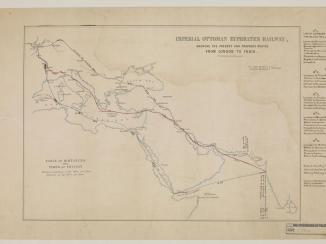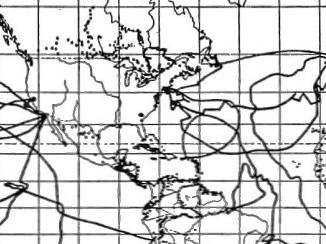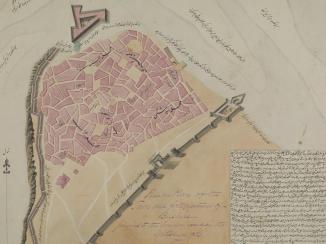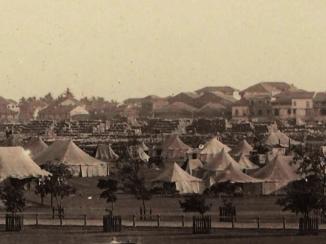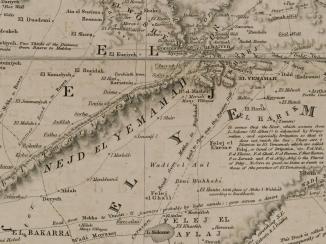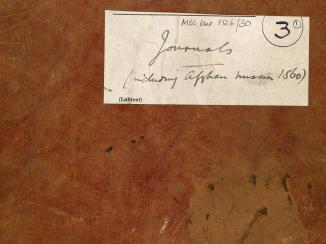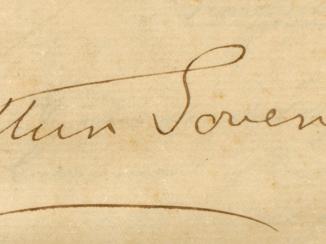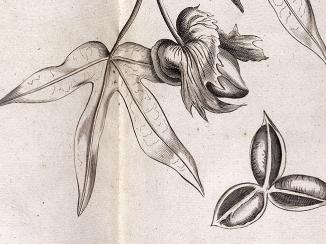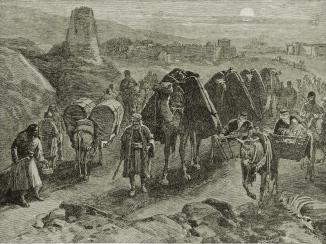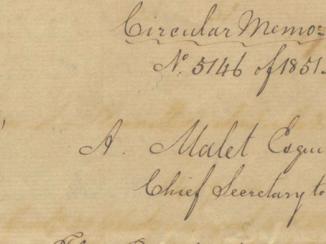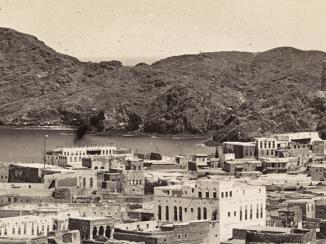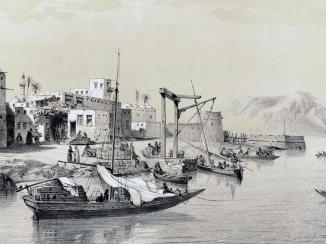Overview
In the 1860s, the telegraph was the fastest form of communication; important messages could reach their destinations in a matter of days rather than months via the mail steamer. Telegraphic communication was essential to the Government of India. Established lines through Turkey and Persia enabled key communications to travel back and forth between England and its Empire much faster than before.
The Gulf was identified as a key region in linking up the various telegraph lines to speed up communications with India and Britain. But the region also had the potential for facilitating the extension of lines as far as China and Australia via submarine cables, an idea that had been explored as early as November 1874.
The Vision for Telegraphic Communications
In May 1860, John Wortley de la More, an entrepreneur in the telegraph industry, outlined his plans to extend the telegraph lines further through Persia by establishing a line from Baghdad to Basra, and from there via the Gulf to Karachi. De la More believed that these extensions would produce a telegraph route that was much more commercially and politically viable than the Red Sea line, which he reported to have already suffered several ruptures since its installation in 1858.
From 1862–4, telegraph vessels arrived in the Gulf with telegraph cables ready to lay new lines. By November 1864, Lewis Pelly had concluded negotiations with the Sultan of Muscat, Thuwaynī bin Saʻīd Āl Bū Saʻīd, which resulted in the signing of articles of agreement to permit telegraph lines to be laid through Muscat.

New Telegraph Routes
Following on from his success in Muscat, Pelly embarked on a journey from Bandar Abbas to Jask in December 1864. He wrote a detailed report on the geographic layout of the land he travelled through and its suitability for the establishment of a telegraph line, as well as documenting the area’s geology and local tribes. In December 1865, further explorations for possible lines from Bandar Abbas to Gwadar were surveyed by Colonel Frederic John Goldsmid and Major Robert Murdoch Smith. Throughout 1867 and 1868, further extensions were explored along the Mekran coastline, between Musandam and Henjām, and throughout Persia and Baluchistan.
In November 1869, a cable vessel arrived in the Gulf to begin laying telegraphic lines from Jask to Bombay. In an undated letter Pelly reported on the progress being made in building the new telegraph station at Jask.
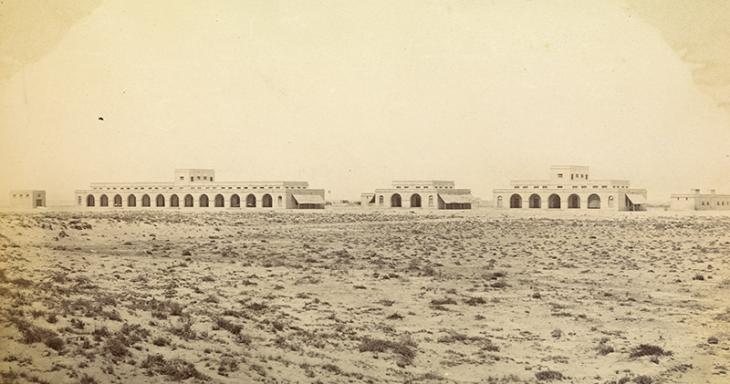
Everyone Wants the Telegraph
The British Home Government’s work in extending the telegraph attracted much attention; when Pelly went to visit Amir Faisal ibn Turki al-Sa’ud in the Najd territories in March 1865, one topic of discussion was the telegraph extensions around the Gulf. According to Pelly’s papers, the Amir understood and appreciated the value of telegraph communications to the region.
But the telegraph industry was a highly competitive one. Concerns were raised by the Government of India in October 1865 when the Minister Plenipotentiary and Envoy Extraordinary A diplomatic representative who ranks below an ambassador. The term can be shortened to 'envoy'. to the Court of Persia, in Tehran, heard rumours of a secret understanding between Russia and Persia that would have resulted in lower prices. Had the secret deal gone ahead, it would have undercut the prices levied along the Turkish line between Constantinople and Fars; an act that would have been hugely detrimental to British interests.
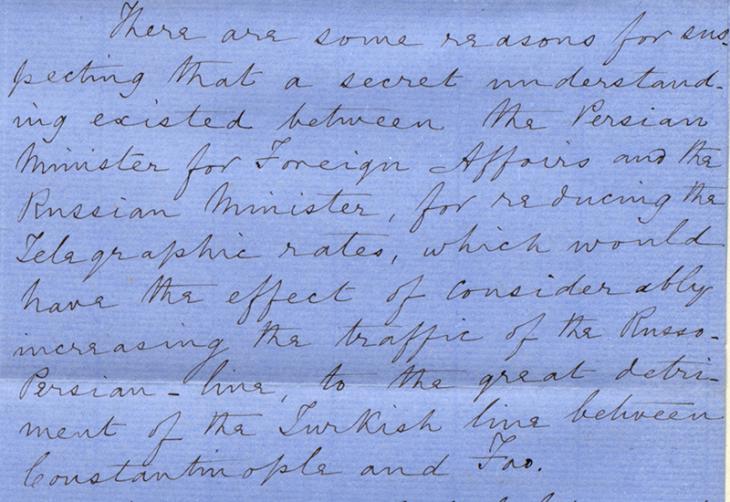
Troubled Times
The process of extending the telegraph lines around the Gulf was not always plain sailing. In January 1866, services between Shiraz and Bushire had to be suspended due to the cold weather. Later, in April that year, the Government of India agreed to send gun boats to the Gulf to protect the telegraph stations at Gwadar and Musandam, which were under threat from piracy and local disputes over land ownership. The telegraph lines through Persia often suffered as a result of local political tensions and the difficult relationship between Britain and Persia, which, in November 1866, led to problems in the transportation of supplies for the upkeep of the telegraph lines as well as for the men who maintained them.
Problems included supplies being confiscated by customs officials or military personnel while conducting searches of supply trains on the way to the telegraph sites.
Despite setbacks, the service enabled the Political Resident A senior ranking political representative (equivalent to a Consul General) from the diplomatic corps of the Government of India or one of its subordinate provincial governments, in charge of a Political Residency. in the Gulf to receive important orders from India and England in a timely manner, which was vital to the British Government’s influence and position in the Gulf.
Moreover, the development of telegraph services in the Gulf throughout the 1860s and early 1870s were vital to the increasing political interests of the British Government in the Gulf and its desire to expand trade throughout the region.













